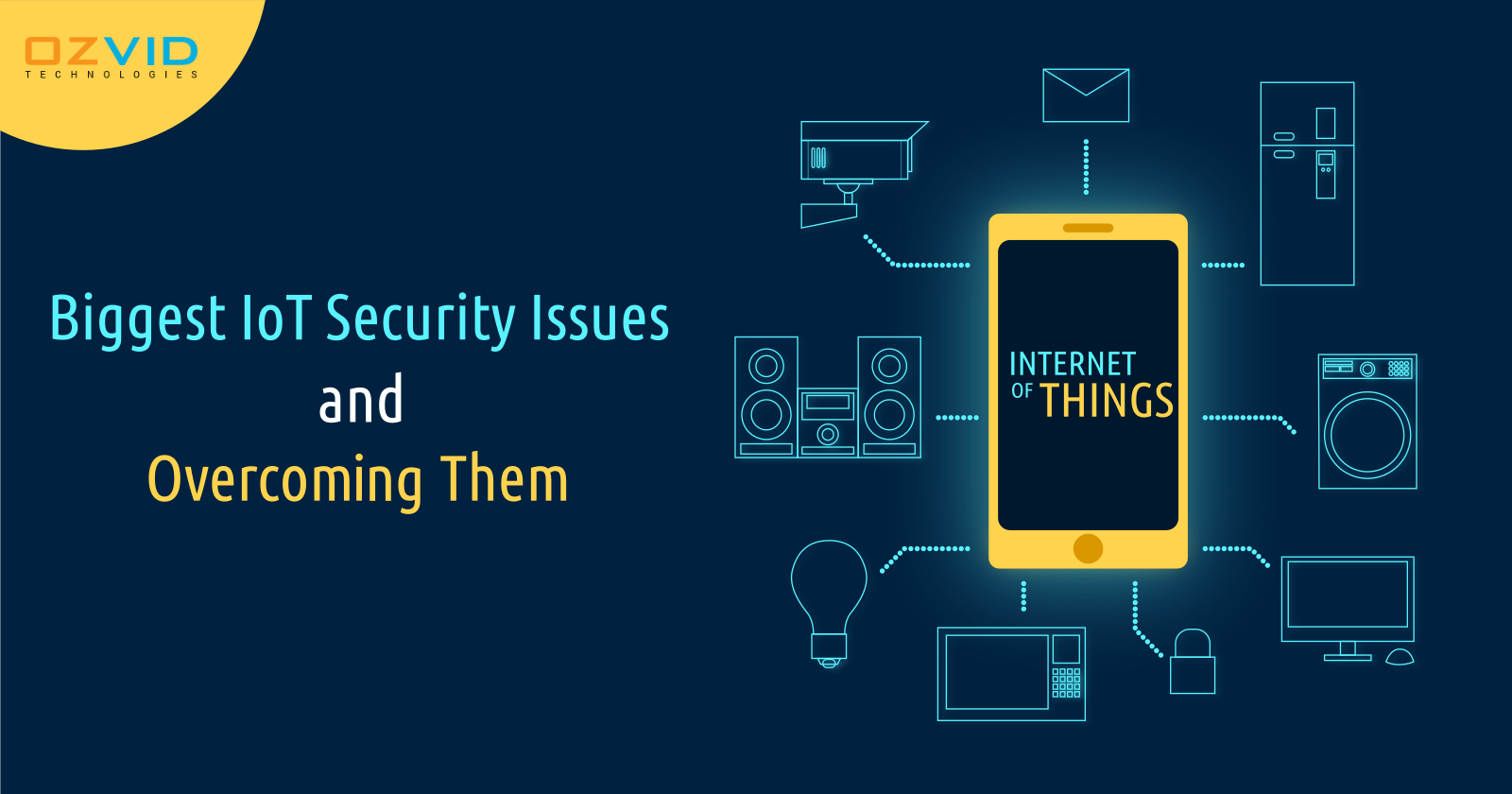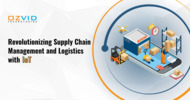- Dec 27, 2018
- Internet Of Things
- 10439
Share this post on:

2018 has been a year of IoT in which we all encountered connected devices, smart homes, smart watches, refrigerator, and what not. Your main door getting automatically locked and car garage automatically opens for you, what else does IoT has to prove! No doubt the Internet of Things brought a revolution in the complete tech world in the recent time and is expected to grow rapidly. More and more industries are adapting it for experiencing advancement.
For 2020, the installed base of Internet of Things devices is forecast to grow to almost 31 billion worldwide.
IoT Security Issues
As every new invention has its own flaws and outcomes, the Internet of Things is no different. IoT has certain security issues because as the number of connected devices multiplies, more will be the data attacks. But this doesn't mean that we will stop developing IoT applications. Rather we need to identify the major security concerns in IoT and find the suitable way outs to overcome the same. So, I have prepared a list of top security issues in IoT and the ways to overcome them smartly.
Data Encryption
Internet of things encounters tons of data, out of which some of it is confidential too which contains the users account details and a lot more. So, it becomes very important to safeguard the user's data from hackers. Suppose you have your account details saved in your smartphone and do you think it would be difficult for the hacker to steal data out of it? So, here is a need to fix this issue.
- You must use SSL(secure socket layer) while you are dealing with confidential data of the users. However, a majority of the website already use SSL for data encryption and data protection.
- Also, you need to protect the wireless protocol side. You must make sure that you are using the wireless protocol with inbuilt encryption.
- You can use firewalls too.
Data Authentication
Once you have encrypted the data, you might feel that you are safe. But what if the device gets hacked? Suppose you have a temperature sensor at home and it is instructed to automatically adjust the temperature. What if somebody enters fake data and instructs the device to lower the temperature even when it's freezing outside. At this point, it becomes necessary to authenticate data. To stay away from all this, you must implement proper protocols which provide:
- Secure session key establishment
- Mutual authentication
- Customer anonymity
Hardware Issues
Major tech influencers like Intel and ARM have already begun to make security amendments in the smart devices. But on the other hand, smart devices have become prone to data threats and attacks. And in this instance, if we want secure devices, it will demand more costs and investment which might not be affordable for us. Moreover, the complex design will demand more battery power. So, we need to design devices which can set within our budget and are approachable in terms of capital too. Otherwise, IoT will become an elite technology for this tech world.
Hardware testing
Before the IoT devices are built, they undergo testing and this reduces the security challenges. Isn't it? But we simply can't rely on this production testing, rather we need to self test the device too. We need to test the memory capacity, device range, scalability, reconfigurability, and device latency before we buy the device. Very soon, manufacturing testing will be made available to the customers to test their device by DIY(Do it yourself) technique to make sure the device is safe to use and is properly under your control or not.
Managing Updates
During the time of making updates to the IoT devices, people will encounter certain problems including- older devices might not support the update, the customer hasn't opted for an update, and so on. Also, to carry out the updates, there will a requirement of downtimes and the data needs to be physically accessed too. However, you can keep track of the versions of every IoT device on your device manager.
How can we develop secured IoT Applications?
The security solutions mentioned above must be implemented immediately if you are planning to go ahead with IoT applications. And if you are at the beginning stage of your business in IoT sector, it is essential to look up for a suitable IoT vendor which understands your business requirements completely and assists you in developing the perfect IoT mobile applications. So, don't rush while you choose your vendor, take out enough time, make a thorough research, and then finalize your decision. Else, be prepared for the consequences!
And if you are planning to develop an IoT Application, you can go through these questions before you begin with it.










